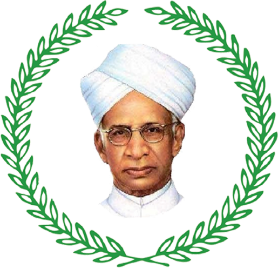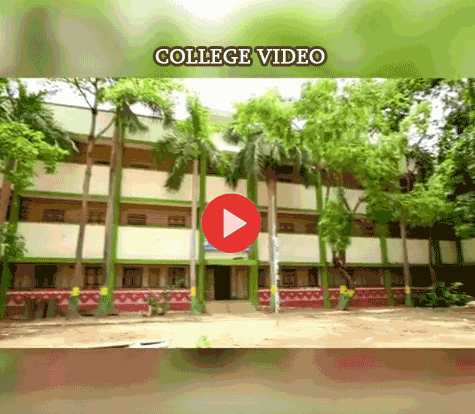Programs Offered (NEP)
AWARDING UG CERTIFICATE, UG DIPLOMA AND UG / UG (HONORS) DEGREE:
UG Certificate: Students who opt to exit after completion of the first year and have secured 42 credits will be awarded a UG certificate if, in addition, they complete one vocational course of 4 credits during the summer vacation of the first year.
UG Diploma: Students who opt to exit after completion of the second year and have secured 84 credits will be awarded the UG diploma if, in addition, they complete one vocational course of 4 credits during the summer vacation of the second year.
3-year UG Degree: Students who wish to undergo a 3-year UG programme will be awarded UG Degree in the Major discipline after successful completion of three years, securing 124 credits and satisfying the minimum credit requirement as mentioned in table below.
4-year UG Degree (Honours): Students who secure a minimum of 50% marks in the first six semesters and not undertake Research Project / Dissertation will do 3 courses 12 credits in the fourth year. A four-year UG Honours degree in the major discipline will be awarded to those who complete a four-year degree programme with 164 credits and have satisfied the credit requirements as mentioned in table below.
4-year UG Degree (Honours with Research): Students who secure a minimum of 50% marks in the first six semesters and wish to undertake research at the undergraduate level can choose a research stream in the fourth year. They should do a research project or dissertation under the guidance of a faculty member of the University / College. The research project / dissertation will be in the major discipline. The students who secure 164 credits, including 12 credits from a research project / dissertation, are awarded UG Degree (Honours with Research).
Pondicherry University NEP Regulations for Affiliated Colleges 2023-24 Click Here
Year/Semester Wise Course Structure for UG & UG (Hons) - Annexure I Click Here
Year/Semester Wise Credits and Hours of Work as per NEP - Annexure II Click Here
NEP Classification of Courses:
Major Discipline (MJD): Major disciplinary courses are subject specific compulsory courses that a student has to complete to obtain the UG/UG (Hons) Degree in the given discipline. Major disciplinary courses shall constitute 50% of the total credits.
Minor Discipline (MID): Minor disciplinary courses refer to those subjects which are allied to the Major discipline. Minor Disciplines are two types.
(i) Minor discipline Cognate: A pool of courses offered by the parent department/cognate (allied) departments.
(ii) Minor discipline Generic: The subsidiary/elective subject chosen from a basket of courses offered by different departments other than the minors offered by the parent department.
Skill Enhancement Course(SEC):These courses focus at imparting practical skills with hands-on Training. Colleges may also outsource the Skill Enhancement Courses to AICTE approved agencies for conducting short term Training Workshops, Skill India initiatives of GOI and approved Trades by Skill development of corporation are to be considered. short term courses.
Summer Internship : As per the UGC guidelines all UG students should be exposed to 4 to 6 week Summer Internship in an industrial organisations/Training Centres/Research Institution, etc. Such Summer Internship is to be conducted in between 4th Semester and 5th semester. A review of report and award of grade based on Work based learning by students is to be recorded during the 5th Semester.
COLLEGE OFFERS THE FOLLOWING PROGRAMMES FOR UG CERTIFICATE, UG DIPLOMA AND
UG / UG (HONORS) DEGREE:
B.A. / B.Com. / B.Sc. UG Programmes |
|||||
|
Sl. No. |
Major Programme |
Programme Code |
Students Intake |
Programme Syllabus & Objectives / Outcomes |
|
|
1. |
Economics |
ECON |
50 |
||
|
MID |
|||||
|
2. |
Commerce |
COM |
40 |
||
|
MID |
|||||
|
3. |
Botany |
BO |
20 |
||
|
MID |
|||||
|
4. |
Chemistry |
UCHM |
30 |
||
|
MID |
|||||
|
5. |
Computer Science |
CS |
40 |
||
|
MID |
|||||
|
6. |
Mathematics |
MT |
30 |
||
|
MID |
|||||
|
7. |
Physics |
PHYS |
20 |
||
|
MID |
|||||
|
8. |
Zoology |
ZL |
25 |
||
|
MID |
|||||
* Note: MJD - Major Disciplinary Courses (60 / 80 Credits); MID - Minor Disciplinary Courses (24 / 32 Credits); MLD - Multi-Disciplinary Courses (9 Credits).
NCC (General / Specific Elective Course):
Course Structure and Syllabus - Click Here
MANDATORY COURSES:
The following courses are mandatory for UG / UG (Honours) Degree.
MULTI-DISCIPLINARY (MLD):
Students are expected to learn basic/introductory courses designed by other departments for this purpose. All UG students are required to undergo 3 introductory-level courses (one each in Natural Sciences, Physical Sciences, Humanities & Social Sciences) for uniform adoption.
|
Semester |
Course Code |
Broad Disciplines |
Credits |
Course Title |
Syllabus & Course Objectives / Outcomes |
|
Semester-I |
MLD-1 |
Natural Science |
3 |
Herbal Nutrition |
|
|
Basic Botany |
|||||
|
Basic Zoology |
|||||
|
Basic Microbiology |
|||||
|
Fundamentals of Biotechnology |
|||||
|
Semester-II |
MLD-2 |
Physical Sciences |
3 |
Electronics in Everyday Life |
|
|
Chemistry in Everyday Life |
|||||
|
Science and Society |
|||||
|
Energy in Everyday Life |
|||||
|
Basic Mathematics |
|||||
|
Semester-III |
MLD-3 |
Humanities / Social Sciences |
3 |
Basic Economics Concepts and Measurement |
|
|
Basics of Accounting |
|||||
|
French for Beginners |
|||||
|
Commercial Geography |
|||||
|
Introduction to Public Administration |
ABILITY ENHANCEMENT COURSES (AEC):
All Undergraduate (UG) students are mandated to complete 12 Credits worth of Courses (2 - Functional English and 2 - Modern Indian Languages) in first 2-years.
|
Semester |
Course Name |
Course Code |
Course Title |
Credits |
Course Syllabus & Objectives/Outcomes |
|
Semester-I |
English or Telugu / Hindi |
AEC-1 |
Functional English - I |
3 |
|
|
AEC-2 |
General Telugu - I |
||||
|
Adhunik Bharatiya Bhasha - I |
|||||
|
Semester-II |
English or Telugu / Hindi |
AEC-3 |
Functional English - I |
3 |
|
|
AEC-4 |
General Telugu - I |
||||
|
Adhunik Bharatiya Bhasha - I |
|||||
|
Semester-III |
English or Telugu / Hindi |
AEC-5 |
Functional English - II |
3 |
|
|
AEC-6 |
General Telugu - II |
||||
|
Adhunik Bharatiya Bhasha - II |
|||||
|
Semester-IV |
English or Telugu / Hindi |
AEC-7 |
Functional English - II |
3 |
|
|
AEC-8 |
General Telugu - II |
||||
|
Adhunik Bharatiya Bhasha - II |
VALUE-ADDED COURSES (VAC):
Under NEP, the UGC has proposed for 8 credits worth of common courses which are likely to add value to overall knowledge base of the students.
|
Semester |
Course Code |
Course Title |
Credits |
Syllabus & Course Objectives / Outcomes |
|
Semester-I |
VAC-1 |
Environmental Studies |
2 |
|
|
VAC-2 |
Understanding India (Theory/Field based) |
2 |
||
|
Semester-II |
VAC-3 |
Health & Wellness, Yoga Education, Sports & Fitness |
2 |
|
|
VAC-4 |
Digital Technologies (Theory/Field based) |
2 |
BREAKUP OF CREDITS AND COURSES:
|
.Sl. No |
Component |
3 Year Degree |
4 Year Hons Degree |
|
1. |
Major Disciplinary Courses |
60 Credits (15 courses of 4 credits each) |
80 Credits (20 courses of 4 credits each) |
|
2. |
Minor Discipline Courses (Vocational Programme Included) |
24 Credits (6 courses of 4 credits each) |
32 Credits (8 courses of 4 credits each) |
|
3. |
Multi-Disciplinary Courses |
9 Credits (3 courses of 3credits each) |
9 Credits (3 courses of 3 credits each) |
|
4. |
Ability Enhancement Courses |
12 Credits (4 courses of 3 credits each) |
12 Credits (4 courses of 3 credits each) |
|
5. |
Skill Enhancement Course |
9 Credits (3 courses of 3 credits each) |
9 Credits (3courses of 3 credits each) |
|
6. |
Value-added Courses |
8 Credits (4 course of 2 credits each) |
8 Credits (4 course of 2 credits each) |
|
7. |
Community Engagement and Service |
1 course of 2 credits |
1 course of 2 credits |
|
8. |
Summer Internship |
(4 credits - Included in Major courses of 60 credits) |
(4 credits - Included in Major courses of 80 credits) |
|
*9. |
3 Additional Major Courses or Research Project / Dissertation |
- |
12 Credits (3 courses of 4 credits each) or 1 course of 12 credits |
|
Total Courses / Credits |
36 Courses / 124 Credits |
44 or 46 Courses / 164 Credits |
|
* Note: Students who secure 50% marks and above in the first six semesters and wish to undertake research at the undergraduate level can choose a research stream in the fourth year. Honor Students not undertaking research will do 3 courses 12 credits in lieu of a Research Project/Dissertation.
Massive Open Online Courses (MOOCs):
The ‘Credit Framework for Online Learning Courses through Study Webs of Active Learning for Young Aspiring Minds’ facilitates an institution to allow up to 40 per cent of the total courses being offered in a particular programme in a semester through the online learning courses offered through the SWAYAM (www.swayam.gov.in) platform. Universities with approval of the competent authority may adopt SWAYAM Courses for the benefit of the students. A student will have the option to earn credit by completing quality-assured MOOC programmes offered on the SWAYAM portal or any other online educational platform approved by the UGC/regulatory body from time to time.
BOS identifies courses suitable to the students from Skill India courses offered by MOOCs/SWAYAM courses/Any other approved list of 3rd party certificate courses sponsored by Industry, GOI at special apprenticeship courses designed by any polytechnic college, Govt. MSME Training centres, BOS may also consider any other skill programmes that other Departments of the given institution. These may include skill training on computer programming, other emerging technologies.
Offering of SWAYAM Courses for the academic year 2023-24 - Click Here
Multiple Entry and Exit Options:
The multiple entry and exit options for students is facilitated at the undergraduate and Master’s levels. It would facilitate credit accumulation through the facility created by the ABC scheme in the “Academic Bank Account” opened for students across the country to transfer and consolidate the credits earned by them by undergoing courses in any of the eligible HEIs. The ABC allows for credit redemption through the process of commuting the accrued credits in the Academic Bank Account maintained in the ABC for the purpose of fulfilling the credits requirements for the award of certificate/diploma/degree by the authorized HEIs. Upon collecting a certificate, diploma or degree, all the credits earned till then, in respect of that certificate, diploma or degree, shall stand debited and deleted from the account concerned. HEIs offering programmes with the multiple entry and exit system need to register in the ABC to enable acceptance of multidisciplinary courses, credit transfer, and credit acceptance.
Guidelines for Multiple Entry and Exit - Click Here
Exit Options:
|
Certification |
Normal Residency Requirements |
Credit Requirements |
Additional Requirements |
|
UG Certificate |
After 2-Semesters of Study |
42 Credits |
Work Based Internship – 4 Credits / Skill Development – 4 Credits |
|
UG Diploma |
After 4-Semesters of Study |
84 Credits |
Work Based Internship – 4 Credits / Skill Development – 4 Credits |
|
3-year UG Degree B.A. / B. Com. / B.Sc. |
After 6-Semesters of Study |
124 Credits |
|
|
4-year UG Degree (Hons.) B.A. / B. Com. / B.Sc. |
After 8-Semesters of Study |
164 Credits |
Students who secure a minimum of 50% marks in the first six semesters and not undertake Research Project / Dissertation will do 3 courses 12 credits in the fourth year. |
|
4-year UG Degree (Hons.with Research) B.A. / B. Com. / B.Sc. |
After 8-Semesters of Study |
164 Credits Including Undergraduate Research Project and Thesis Submission |
Students who secure a minimum of 50% marks in the first six semesters and wish to undertake research at the undergraduate level can choose a research stream in the fourth year. |


